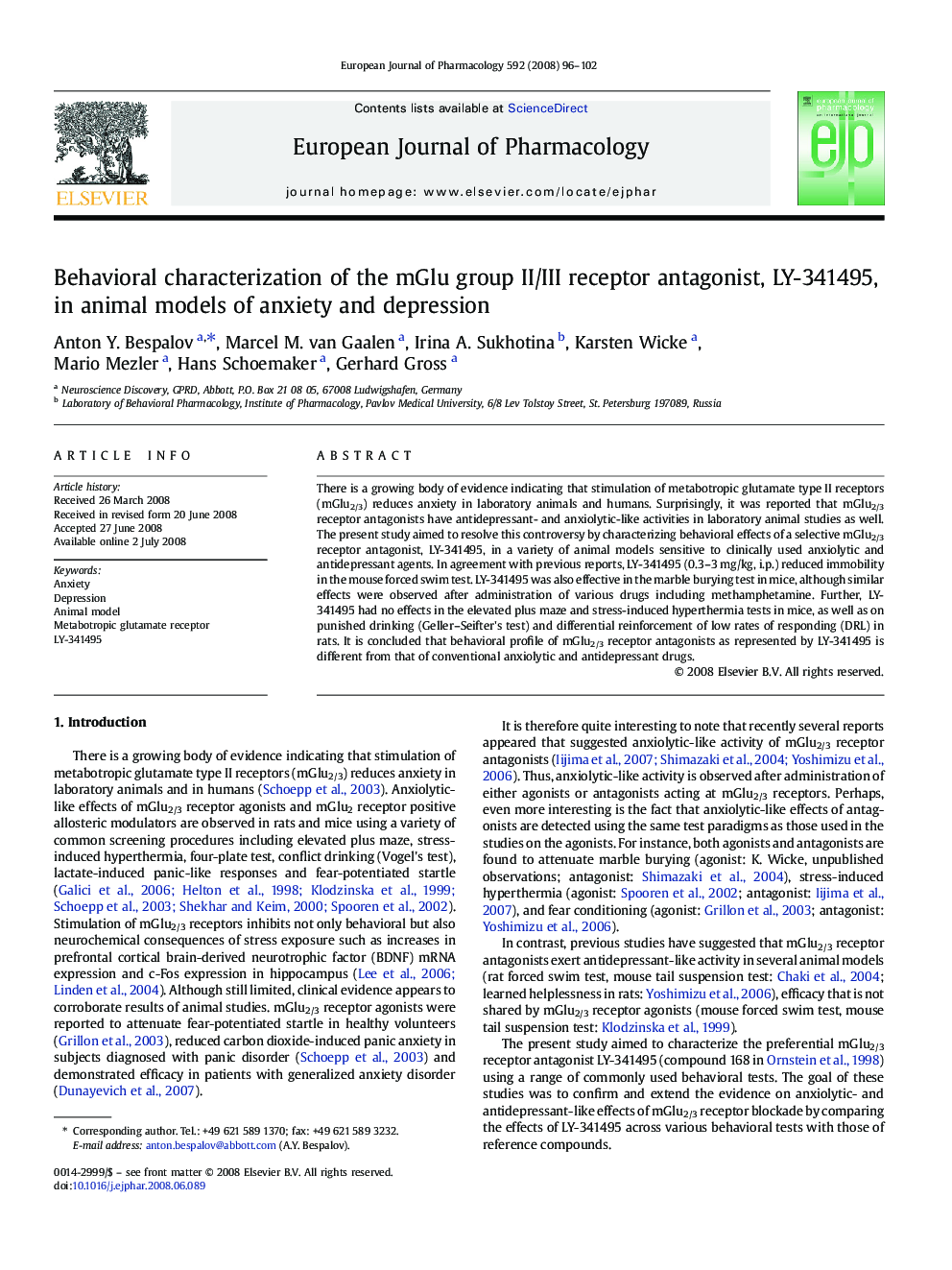| Article ID | Journal | Published Year | Pages | File Type |
|---|---|---|---|---|
| 2534868 | European Journal of Pharmacology | 2008 | 7 Pages |
There is a growing body of evidence indicating that stimulation of metabotropic glutamate type II receptors (mGlu2/3) reduces anxiety in laboratory animals and humans. Surprisingly, it was reported that mGlu2/3 receptor antagonists have antidepressant- and anxiolytic-like activities in laboratory animal studies as well. The present study aimed to resolve this controversy by characterizing behavioral effects of a selective mGlu2/3 receptor antagonist, LY-341495, in a variety of animal models sensitive to clinically used anxiolytic and antidepressant agents. In agreement with previous reports, LY-341495 (0.3–3 mg/kg, i.p.) reduced immobility in the mouse forced swim test. LY-341495 was also effective in the marble burying test in mice, although similar effects were observed after administration of various drugs including methamphetamine. Further, LY-341495 had no effects in the elevated plus maze and stress-induced hyperthermia tests in mice, as well as on punished drinking (Geller–Seifter's test) and differential reinforcement of low rates of responding (DRL) in rats. It is concluded that behavioral profile of mGlu2/3 receptor antagonists as represented by LY-341495 is different from that of conventional anxiolytic and antidepressant drugs.
